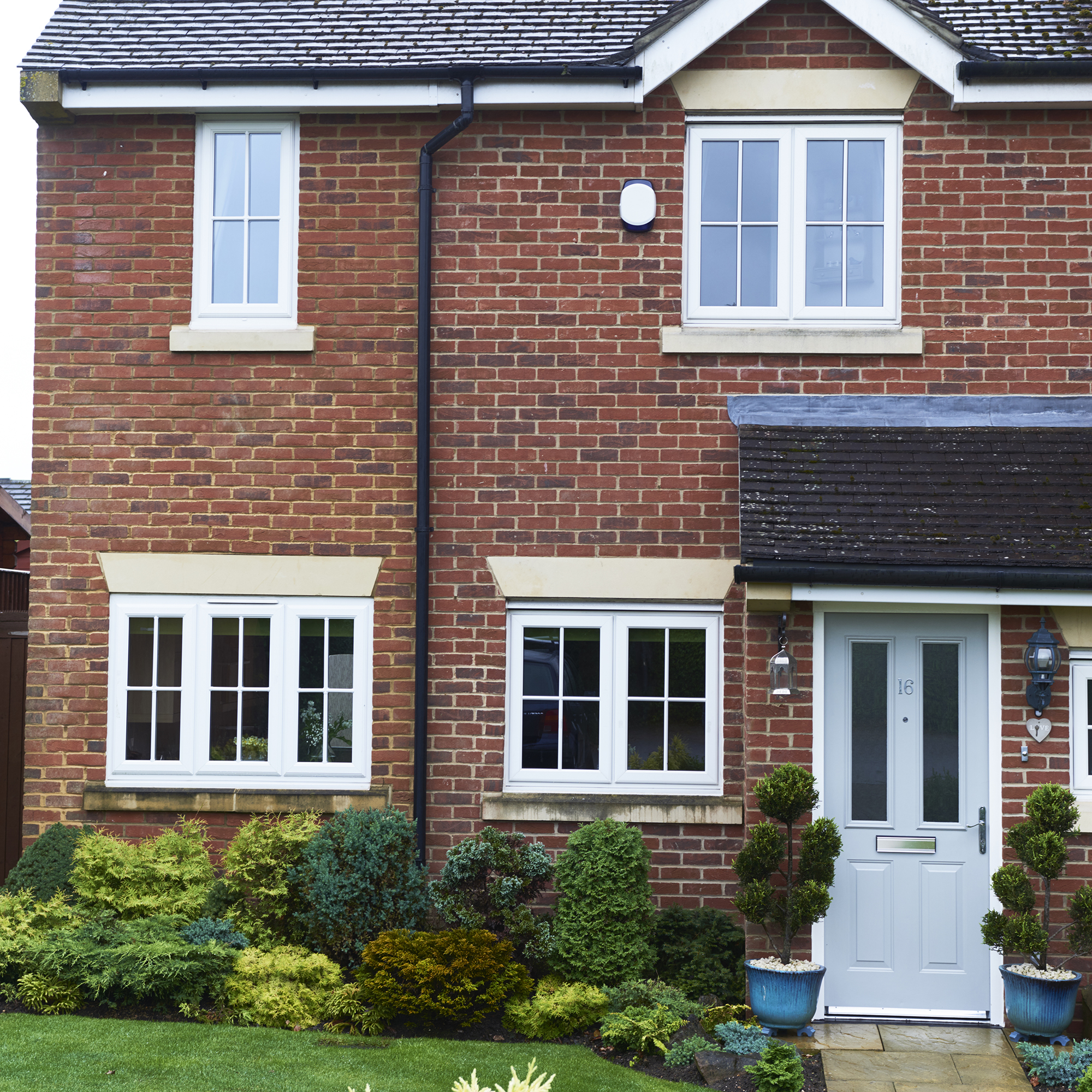Negative equity: what does it mean and how can I avoid it?
No homeowner wants to sink into negative equity. We explain what it is and how to avoid it happening to you

You can come into problems if your home doesn’t hold its purchase value over time – and it can put you at risk of negative equity. This usually happens when property prices fall, and first-time buyers are most likely to be impacted.
But when does being in negative equity become a problem and can it prevent you from remortgaging? Here we look at negative equity in closer detail, including how to avoid it where possible.
What does negative equity mean?

Put in simple terms it means your home is worth less than your mortgage. In other words, if you sold it, you’d still owe money to your lender.
Karen Noye, mortgage expert at advice and wealth management company Quilter, says: ‘In a nutshell, negative equity is when the property you purchased ends up being worth less than the mortgage you took out on it.’
If you have equity in your home, that’s the percentage you own. If you have zero equity, you don’t own any of it. Negative equity means you owe more for the property than it’s worth.
For example:
- If you bought a home worth £200,000 with a £10,000 deposit, the mortgage is worth £190,000. Your equity is 5 per cent.
- If house prices fell, and your home was worth £180,000, you’d still owe £190,000 on the mortgage. Your equity is minus 5.6 per cent.
It can be a particular worry for first-time buyers who usually have a smaller slice of equity compared to homeowners who have been repaying the mortgage for many years.
Get the Ideal Home Newsletter
Sign up to our newsletter for style and decor inspiration, house makeovers, project advice and more.
What's important to note, is that negative equity isn't the same as falling house prices. Your home can lose value, but you're only in negative equity when it dips below the outstanding mortgage balance. It’s a poor outcome for homeowners, but it’s not necessarily the death-knell of homeownership.
Some people won’t be impacted badly. If you’re happy in your home, and can still afford monthly repayments, you can wait it out.
Scott Clay, of specialist lender Together, says: ‘It might only be a moment in time. If house prices rise in future, and your house increases in value, then you will come back out of negative equity through the natural ebb and flow of the UK property market.’
When is negative equity a problem?

It becomes and issue if you need to move house or change mortgage deals. Some homeowners will only find out they’re in negative equity when they try to sell their house or remortgage.
When you want to sell, you'll need more money. Enough to settle the mortgage with your lender, and for a deposit on a new home.
Noye says: ‘This lack of flexibility can have big consequences, particularly for younger buyers. They're more prone to changes in circumstances such as needing to relocate for a new job. Or needing extra space for a growing family.’
It can also prevent a problem for couples who want to separate. They can’t stay together but can’t afford to sell either.
If you pay an interest-only mortgage you could struggle, because you haven’t built equity in your home. At the end of the term, you have to pay the original property purchase price. If you need a new mortgage this will be difficult while in negative equity. If you sell, there won’t be enough money raised to pay off the final bill.
Do I have a chance of remortgaging?

If you’re in negative equity, your lender won’t offer you a cheaper deal when your existing mortgage rate ends. Neither would one of its rivals. You’re likely to move on to your lender’s standard variable rate, which is usually more expensive.
If you have enough savings to lift yourself out of negative equity and provide a deposit, then you could remortgage.
For example, if you're in negative equity by £5,000, you need that sum of money, plus however much is required as a deposit on a new deal. Movers might be able to secure a special ‘negative equity mortgage.’ This allows you to transfer your situation to a new property. But it’s likely to be an expensive deal and you should seek advice from a mortgage broker first.
Is there anything I can do to avoid falling into negative equity?
If you’re looking to buy a home, a bigger deposit helps so you don’t overstretch yourself financially.
If you’re already a homeowner, then overpaying the mortgage can help. The more equity you build up in your home, the less of a threat negative equity is to you.
Clay says: ‘Mortgage lenders typically allow borrowers to overpay their mortgage by around five to ten per cent of the outstanding debt each year. ‘This can be a sensible use of any disposable cash.’
Ultimately, a shrewd property purchase, more money, or a wait-and-see approach will prevent negative equity from becoming too much of a problem.

Laura Shannon is an award-winning consumer and money journalist with more than a decade of experience in her field. She has written for a number of titles including Metro, The Times, Daily Mail, and held the post of personal finance correspondent at The Mail on Sunday for eight years. She is passionate about helping people to save, understand, and manage money more effectively.
-
 5 brilliant budget alternatives to paving slabs that won't cost the earth
5 brilliant budget alternatives to paving slabs that won't cost the earthLooking to pave your garden on a budget? Try these stand-ins...
By Sophie King
-
 Want to cook like Jamie Oliver? Here's the top-rated pan from his collection
Want to cook like Jamie Oliver? Here's the top-rated pan from his collectionJamie's collaboration with Tefal has led to this casserole dish getting the best user reviews I've ever seen
By Molly Cleary
-
 7 best colours to paint a windowless bathroom that will transform the mood of a dark wash space
7 best colours to paint a windowless bathroom that will transform the mood of a dark wash spaceA bathroom without a view needn’t sink your plans for a warm and welcoming retreat
By Linda Clayton
-
 You can claim back over £300 a year from HMRC if you work from home - here’s how to check if you’re eligible
You can claim back over £300 a year from HMRC if you work from home - here’s how to check if you’re eligibleWhen it comes to saving, every little helps
By Kezia Reynolds
-
 Experts have revealed the best day to renew your home insurance policy - you’ll want to do it sooner rather than later
Experts have revealed the best day to renew your home insurance policy - you’ll want to do it sooner rather than laterDon't leave this task at the bottom of your to do list
By Kezia Reynolds
-
 Is a variable rate mortgage ever a good idea? Experts weigh in
Is a variable rate mortgage ever a good idea? Experts weigh inOur money expert explains what a variable rate mortgage is, who they can be good for, and the pros and cons of this kind of mortgage
By Samantha Partington
-
 I’m a first-time buyer, what are my chances of getting a mortgage right now?
I’m a first-time buyer, what are my chances of getting a mortgage right now?And what you can do to increase your odds
By Rachel Wait
-
 Should you ever pay above the asking price for a home?
Should you ever pay above the asking price for a home?Our money expert explains whether you should ever pay over the asking price for a home, especially if house prices fall as predicted
By Samantha Partington
-
 Should I fix my mortgage and how long should I fix for?
Should I fix my mortgage and how long should I fix for?We speak to the experts to find out whether you should fix your mortgage and how long for as well as the impact further interest changes could have on your decision
By Samantha Partington
-
 We put your mortgage questions to two leading experts, here's what they said
We put your mortgage questions to two leading experts, here's what they saidAs mortgage panic continues, we've answered the most common questions - from when mortgage rates will come down, to when you actually have to pay stamp duty
By Samantha Partington
-
 'My mortgage is set to skyrocket - what should I do?' 5 potential solutions from a money expert
'My mortgage is set to skyrocket - what should I do?' 5 potential solutions from a money expertIf you're facing higher mortgage costs, our money expert explains various courses of action you could take to ease the pressure
By Samantha Partington